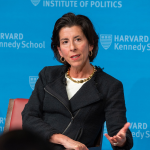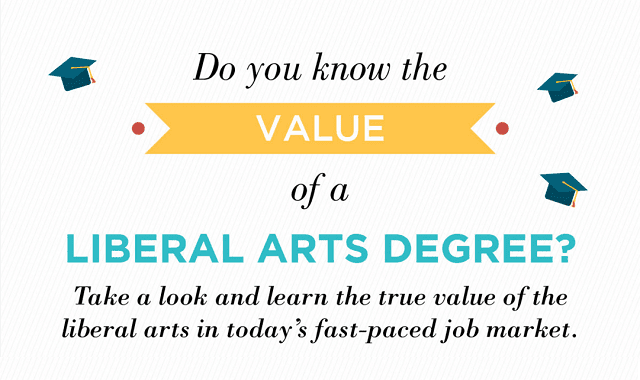The value of a liberal arts education has come to the forefront of discussions on higher education, particularly as today’s job market evolves at an unprecedented pace. Advocates highlight that this approach equips students with essential liberal arts skills, fostering critical thinking that is vital in navigating complex societal issues. Unlike the narrower focus of vocational training, a liberal arts education emphasizes breadth, preparing individuals not just for their first job but for a lifelong career filled with change and adaptability. The importance of critical thinking cannot be overstated, as it empowers graduates to assess and address challenges creatively and effectively. Ultimately, the benefits of a college education rooted in the liberal arts extend beyond personal gain; they cultivate informed citizens capable of participating meaningfully in our democracy.
The significance of a comprehensive education rooted in the humanities and social sciences cannot be overlooked in contemporary dialogues about higher education. This holistic approach stands in contrast to more focused vocational paths, with its core purpose centered on developing versatile skills that are increasingly necessary in a dynamic economic landscape. As society confronts complex issues, the ability to engage in critical analysis and thoughtful discourse is paramount, underscoring the necessity of these foundational liberal arts principles. Moreover, a broad-based curriculum instills flexibility in students, allowing them to pivot across various industries as job markets continue to shift. In essence, this type of educational framework fosters not only intellectual growth but also prepares individuals for success in an unpredictable future.
The Value of a Liberal Arts Education in Today’s Job Market
In the contemporary job market, the value of a liberal arts education is increasingly recognized as essential. This broad academic background equips students with critical thinking skills and a diverse set of competencies that are attractive to employers across various industries. Unlike vocational training, which often focuses on specific technical skills for particular jobs, a liberal arts education provides graduates with the intellectual flexibility necessary to adapt to rapidly changing work environments. Notably, employers often seek individuals who can communicate effectively, analyze complex problems, and collaborate with diverse teams—all skills honed through a liberal arts education.
Additionally, as industries continue to evolve due to technological advancements and globalization, the ability to think critically and innovate becomes paramount. Graduates from liberal arts programs are trained not just to memorize facts or apply specific techniques, but to engage in creative problem-solving and adapt to new challenges. This adaptability is especially valuable in an era where traditional job roles are constantly being redefined, making the liberal arts a solid foundation for long-term career success.
Liberal Arts vs. Vocational Training: A Comparative Analysis
When comparing liberal arts education with vocational training, it’s important to recognize the different values each brings to the table. Vocational training is designed to prepare individuals for specific careers, emphasizing practical skills and technical knowledge that can lead directly to employment. While this can be beneficial for immediate job placement, it often limits the scope of professional development. In contrast, a liberal arts education cultivates a well-rounded perspective by exposing students to a variety of disciplines, including the humanities, social sciences, and natural sciences, thereby fostering a more adaptable workforce.
Moreover, liberal arts education encourages lifelong learning, critical thinking, and cultural literacy, which are essential in navigating complex social dynamics in the modern job market. This holistic approach prepares students for a range of professions, rather than confining them to one specific path. Ultimately, while vocational training has its merits, individuals with a liberal arts background often find themselves better equipped to tackle unforeseen challenges, making them invaluable assets in diverse sectors.
The Importance of Critical Thinking in Liberal Arts Education
Critical thinking is a cornerstone of liberal arts education, empowering students to analyze issues from multiple perspectives and make informed decisions. In an age where information is constantly at our fingertips, the ability to discern credible sources, evaluate arguments, and synthesize various viewpoints is crucial. Throughout their studies, liberal arts students engage in discussions and explorations that challenge their assumptions and encourage intellectual rigor. This process not only enhances their academic experience but also equips them with indispensable skills applicable in almost any career.
Additionally, strong critical thinking skills foster innovation and creativity, allowing graduates to contribute meaningfully to their fields and society at large. Employers consistently highlight the need for individuals who can think independently and tackle complex problems in creative ways. Thus, the emphasis on critical thought within liberal arts programs plays a pivotal role in preparing students to thrive in an unpredictable job market, reinforcing the relevance and necessity of such an education.
College Education Benefits: Beyond Just Job Placement
Many prospective students and parents often view college merely as a means to secure a job, primarily focusing on employment statistics after graduation. However, the benefits of a college education, particularly one that is rooted in liberal arts, extend far beyond immediate job placements. College serves as a transformative experience that fosters personal growth, self-discovery, and the development of essential life skills. Liberal arts education encourages students to explore their interests, engage with diverse cultures, and develop interpersonal skills—qualities that are vital in both personal and professional realms.
Additionally, the network and relationships cultivated during a college education can provide long-lasting benefits. Students learn to navigate social dynamics, collaborate with peers, and engage in communities, which can lead to future opportunities that may not be readily apparent upon graduation. Thus, while job placement is important, the holistic benefits of a college education in fostering personal development and versatile skills cannot be overlooked.
Liberal Arts Skills: Essential for the Future Job Market
As the job market evolves, the skills acquired through a liberal arts education are becoming increasingly valuable. Graduates equipped with communication, critical thinking, and creative problem-solving abilities are well-positioned to adapt to changing industry demands. The modern workforce requires employees who can navigate complex situations, collaborate across disciplines, and innovate at every turn. A strong foundation in the liberal arts allows graduates to bring a unique perspective to the table, making them stand out in a competitive landscape.
Moreover, the emphasis on soft skills in liberal arts education cannot be overstated. Employers are seeking individuals who possess not only technical expertise but also the ability to work well within teams, engage with diverse perspectives, and demonstrate emotional intelligence. These interpersonal skills are crucial for fostering collaboration and driving project success in any field. Therefore, a liberal arts education doesn’t just prepare students for their first job; it prepares them for a lifetime of adaptation and growth in their careers.
Addressing the Skepticism Surrounding Liberal Arts Education
Despite the clear advantages of a liberal arts education, skepticism persists regarding its practical value in today’s economy. Critics often question the return on investment of a degree from a less quantifiable field, especially when compared to specialized vocational training. However, as discussed by thought leaders in higher education, the skills gained from liberal arts programs—such as critical analysis, creative problem-solving, and effective communication—are increasingly sought after by employers, making liberal arts graduates competitive candidates in the job market.
It is essential for educational institutions to effectively communicate the myriad benefits of a liberal arts education. By emphasizing the long-term value of these programs—not only in terms of employment opportunities but as a preparation for active citizenship and thoughtful engagement in society—schools can counteract the prevailing narrative that prioritizes immediate job readiness over holistic education. Ultimately, fostering a broader understanding of the benefits of liberal arts can renew interest and appreciation for this educational approach.
The Role of Institutions in Promoting Liberal Arts Education Accessibility
Institutions play a critical role in enhancing the accessibility of liberal arts education. Many students, particularly those from low-income backgrounds or first-generation college attendees, may perceive a liberal arts degree as a luxury rather than an attainable goal. In order to promote wider engagement with liberal arts programs, universities must strive to create inclusive environments that encourage exploration across disciplines. This involves offering scholarships, flexible course schedules, and outreach programs designed to engage diverse communities.
Furthermore, educational institutions should actively communicate the value of liberal arts education to prospective students and parents, highlighting real-world applications and the skills developed throughout the curriculum. As these institutions evolve, they must innovate in ways that capture the interests of current and future students while ensuring that the intrinsic value of a liberal arts education remains accessible to individuals from all backgrounds.
Innovative Approaches to Enhance Liberal Arts Education
To keep pace with the changing landscape of higher education, it is vital for liberal arts programs to adopt innovative pedagogical approaches. This includes integrating technology into the curriculum, enhancing collaborative learning, and employing real-world applications to engage students more effectively. For example, incorporating project-based learning or community-based initiatives can help students apply their knowledge in practical settings, reinforcing the relevance of their studies in everyday life.
Additionally, fostering partnerships with local organizations, businesses, and alumni can provide students with opportunities for experiential learning and internships. These real-world experiences can enhance the educational process, giving students insight into how their liberal arts skills can be employed in various professional settings. Emphasizing a hands-on approach to education will not only make liberal arts more appealing but also promote its integration into the future job market.
Future Trends in Higher Education and the Liberal Arts
The future of higher education, particularly in the realm of liberal arts, is likely to be shaped by several trends, including technological advancements, shifting workforce demands, and evolving perceptions of education’s role in society. As job markets continue to evolve towards requiring greater adaptability, the liberal arts’ focus on critical thinking, communication, and creativity stands to be increasingly prioritized. Students will gravitate towards programs that not only teach them subject matter but also cultivate essential skills that can be applied to multiple domains.
Simultaneously, the challenge remains for liberal arts institutions to balance traditional educational philosophies with modern necessities—ensuring they remain relevant and empowering to students. By actively engaging with ongoing conversations about the value of education and innovating curriculums to include emerging topics and interdisciplinary studies, liberal arts can maintain its significance in a world increasingly dominated by rapid change and uncertainty.
Frequently Asked Questions
What is the value of liberal arts education compared to vocational training?
The value of a liberal arts education lies in its ability to cultivate critical thinking and adaptable skills that are essential in today’s job market. Unlike vocational training, which focuses on specific skill sets for particular jobs, a liberal arts education provides a broad foundation that prepares students for diverse career paths and equips them to tackle unforeseen challenges in the workforce.
How does liberal arts education contribute to future job market skills?
Liberal arts education enhances future job market skills by fostering critical thinking, communication, and analytical abilities. These skills enable graduates to evaluate complex information, collaborate with diverse teams, and adapt to changing job demands, making them valuable assets in any industry.
What are the benefits of a college education that includes liberal arts courses?
A college education encompassing liberal arts courses offers several benefits, including the development of transferable skills, enhanced creativity, and improved cultural awareness. These benefits prepare students not only for their first job but also for lifelong learning and career evolution in a dynamic work environment.
Why is critical thinking important in a liberal arts education?
Critical thinking is a cornerstone of liberal arts education; it trains students to analyze information, recognize biases, and assess arguments systematically. This skill is vital for informed decision-making and active participation in society, enabling individuals to contribute meaningfully to democratic discourse.
What skills do graduates with a liberal arts education possess?
Graduates with a liberal arts education possess a range of skills, including effective communication, problem-solving, creative thinking, and the ability to understand and appreciate diverse perspectives. These skills are crucial for adapting to various roles and industries within the modern job market.
How can liberal arts education be made more appealing to students amidst rising tuition costs?
To enhance its appeal, liberal arts education should emphasize its long-term value by highlighting the development of versatile skills that lead to diverse career opportunities. Additionally, institutions can innovate curriculum offerings, integrate experiential learning opportunities, and communicate the real-world application of liberal arts skills more effectively.
What future career paths can liberal arts graduates pursue?
Liberal arts graduates can pursue various career paths, including roles in education, public service, business, marketing, and the arts. Their broad skill set and ability to think critically make them well-suited for leadership positions and adaptive roles in an ever-evolving job landscape.
How does the importance of liberal arts education reflect societal needs?
The importance of liberal arts education reflects societal needs by promoting informed citizenship, cultural literacy, and the ability to engage with complex social issues. As society grapples with rapid technological advancements and cultural shifts, liberal arts graduates are equipped to navigate these changes and contribute positively to their communities.
Why do some people perceive liberal arts education as a luxury?
Some perceive liberal arts education as a luxury due to its association with higher tuition costs and the belief that it does not lead directly to specific job placements. This perception may overshadow the critical skills and broader perspectives that liberal arts cultivates, which are essential in a diverse and changing job market.
How can liberal arts education support mental health and community building?
Liberal arts education supports mental health and community building by fostering connections among students from diverse backgrounds, encouraging self-reflection, and promoting engagement in intercultural interactions. These experiences help students develop the interpersonal skills and resilience necessary for building supportive communities.
| Key Contributors | Key Points |
|---|---|
| Samantha Laine Perfas | Host of Harvard Thinking, discusses the importance of liberal arts education in modern society. |
| Susanna Siegel | Link between liberal arts and democracy; argues that losing liberal arts would make society vulnerable to oppression. |
| David Deming | Highlights that liberal arts education prepares students for future challenges by developing critical thinking and adaptability. |
| Nancy Hill | Emphasizes the need for making liberal arts education more accessible and relevant to all socioeconomic classes. |
Summary
The value of liberal arts education has never been more pronounced as it cultivates critical thinking, adaptability, and a diverse skill set that prepares students for the ever-evolving job market. In contrast to vocational training, which often focuses narrowly on specific technical skills, liberal arts education offers a broader perspective that fosters innovation and responsible citizenship. As society faces complex challenges, the ability to think critically and understand diverse viewpoints becomes crucial. Therefore, investing in liberal arts education is not merely about enhancing personal knowledge, but about ensuring a more informed, engaged, and adaptable workforce. This holistic approach to education is essential for the democratic and cultural fabric of our society.







